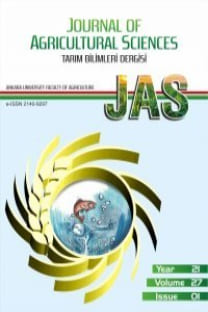Comparative Biochemical Analysis of High and Low Sucrose Accumulating Sugarcane Varieties at Formative Stage under Heat Stress
Sugarcane (Saccharum officinarum L) is a valuable cash crop which plays an imperative role in the worldwide economy. However, high temperature has significantly retarded the crop growth and yield by alteration of biochemical pathways. Therefore, the biochemical activities of two sugarcane varieties were explored under heat stress condition. The sugarcane cultivars S2003-US-633 (high sucrose accumulation) and SPF-238 (low sucrose accumulation) were cultivated and subjected to different temperature regimes i.e. control at 30±2 °C, heat stress at 45±2 °C and recovery at 30±2 °C for 24, 48 and 72 hours at formative stage. Detailed profiling of physiochemical attributes, sugar analysis linked with sucrose metabolism enzymes and thermotolerance indicators were investigated. S2003-US-633 exhibited better response in terms of sugar accumulation regulated by sucrose synthase, sucrose phosphate synthase and invertase activities along with more proline accumulation, total soluble protein contents with response to high temperature exposure. While S2003-US-633 is ranked as tolerant variety due to less MDA, H2O2 content and electrolytes leakage exhibiting its efficient tolerance mechanism, giving high sugar recovery rate despite harsh environmental conditions. Thus, these findings can be helpful in providing information for engineering sugar improvement along with thermotolerance in sugarcane varieties and providing new avenues towards the economic development of the country.
Keywords:
Metabolizing enzymes, Oxidative markers, Sugar recovery, Stress indicators, Thermotolerant, Yield,
___
- Dr.Abdul Wahid prof department of Botany, University of Faisalabad ,Pakistan
- Email: drawahid@uaf.edu.pk
- Prof.Dr. Zia-Ul-Hassan department of soil science, Sindh Agriculture University Tandojam, Pakistan
- Email: zhnshah@gmail.com
- Dr. Saboohi Raza chairman department of agriculture and agribusiness management University of Karachi, Pakistan
- Email:razasaboohi@yahoo.com
- Yayın Aralığı: Yılda 4 Sayı
- Yayıncı: Halit APAYDIN
Sayıdaki Diğer Makaleler
Mehmet BOZOĞLU, Nevra ALHAS EROĞLU, Abdulbaki BİLGİÇ
Farzad PAKNEJAD, Azadeh RAZAJİ, Maryam MOAREFİ, Abdolmajid MAHDAVİ DAMGHANİ, Mohammad Nabi ILKAEE
Faisal MEHDI, Kazim ALI, (Nesheman HUMA, Iqbal HUSSAIN, Abid AZHAR, Saddia GALANI
Nevra ALHAS EROĞLU, Mehmet BOZOĞLU, Abdulbaki BİLGİÇ
Meral KEKEÇOĞLU, Nazife EROĞLU, Merve KAMBUR, Münir UÇAK
Emel UNAL TURHAN, Alin BAYRAM TUREMIS, Zerrin ERGINKAYA, Mevhibe TERKURAN
Tülay TUNÇAY, Orhan DENGİZ, Ali İMAMOĞLU
Emel ÜNAL TURHAN, Zerrin ERGİNKAYA, Alin BAYRAM TÜREMİŞ, Mevhibe TERKURAN
